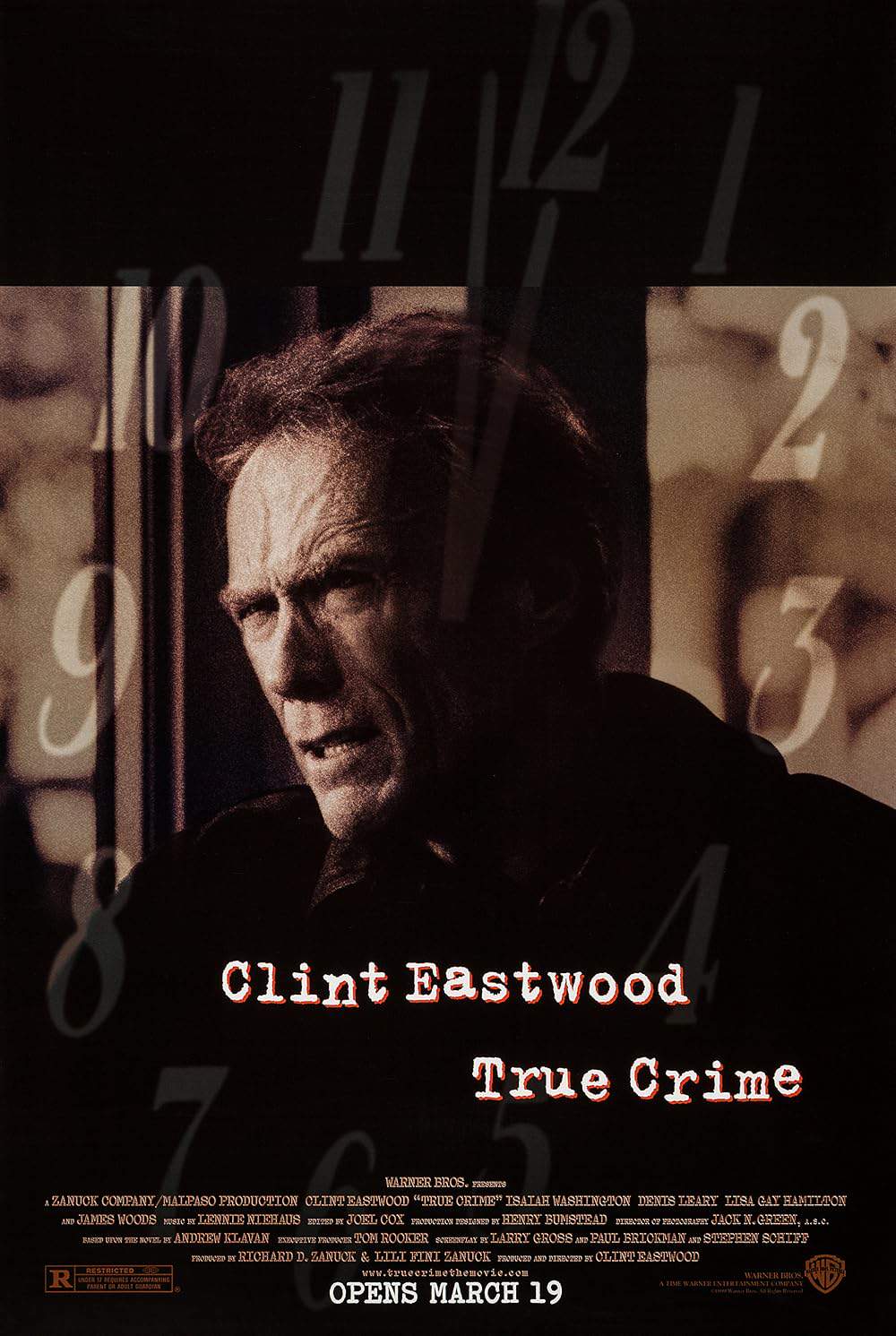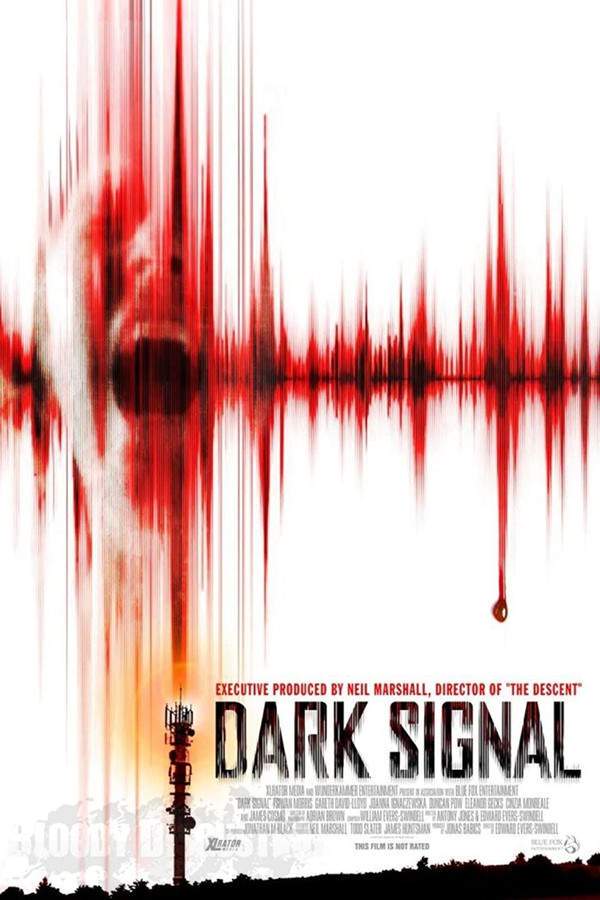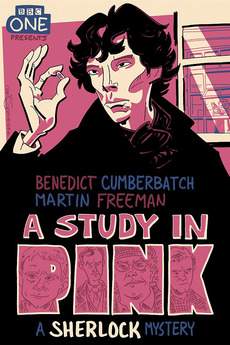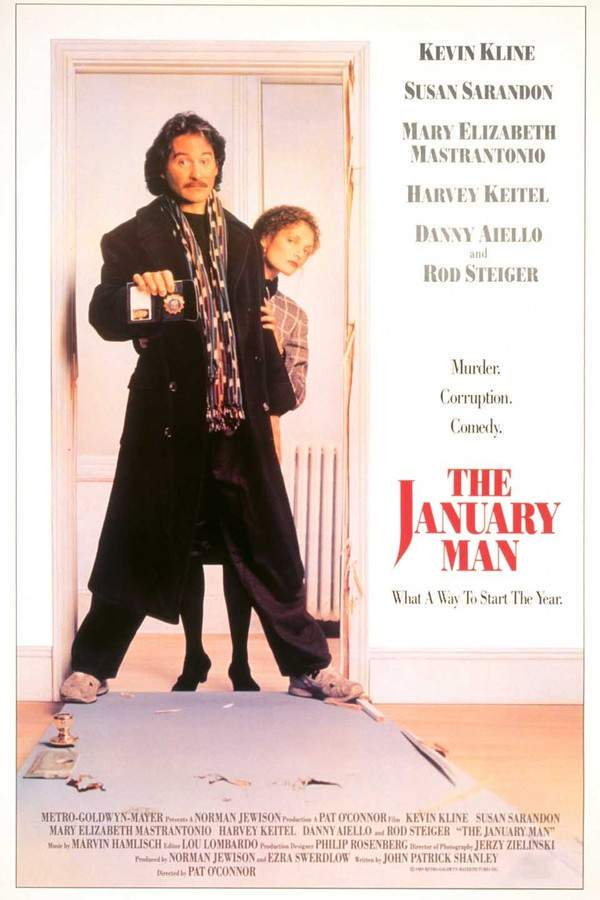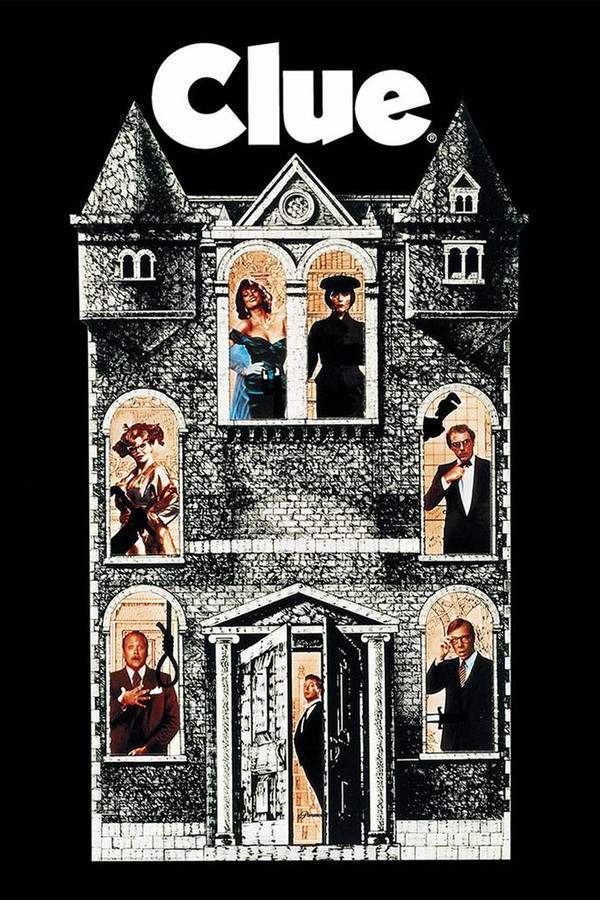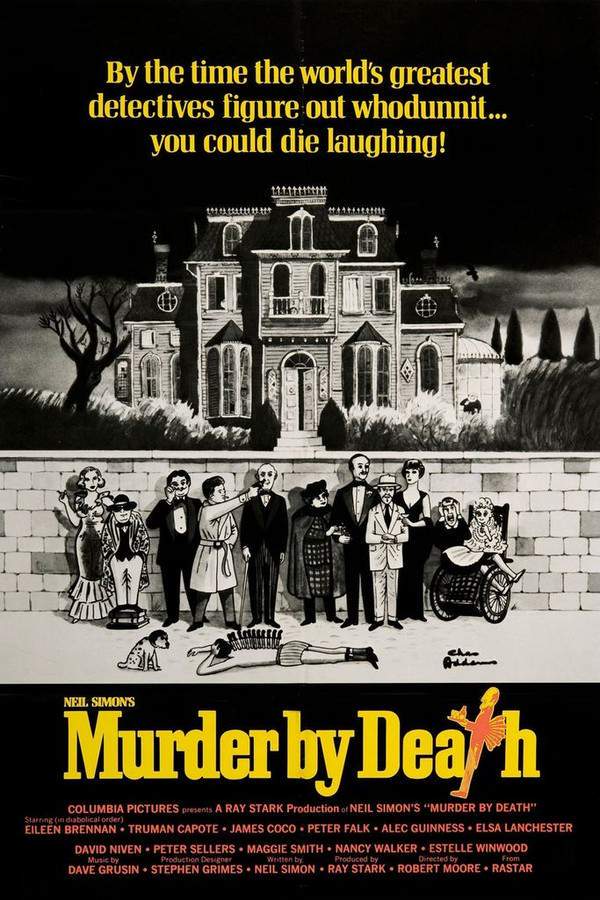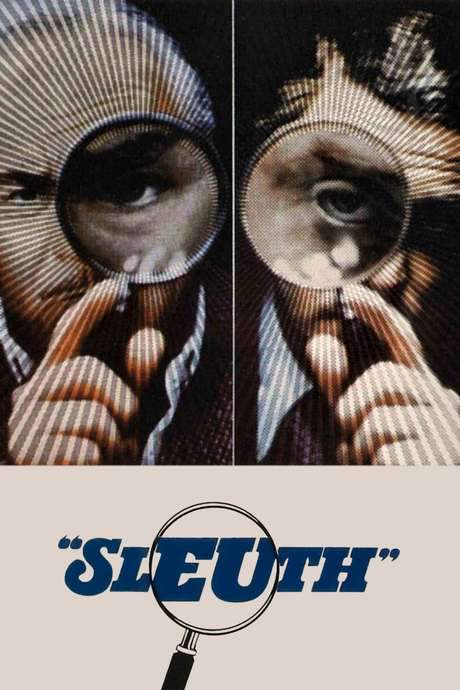
The Twenty Questions Murder Mystery
Year: 1950
Runtime: 95 mins
Language: English
Director: Paul L. Stein
The plot centers on the radio panel show “Twenty Questions,” where the contestants receive an anonymous clue. The solution triggers a rash of murders, as the killer uses the broadcast to announce his future victims. Two reporters discover the connection and, with the panel’s help, set a trap in a tense cat‑and‑mouse game to catch the murderer.
Warning: spoilers below!
Haven’t seen The Twenty Questions Murder Mystery yet? This summary contains major spoilers. Bookmark the page, watch the movie, and come back for the full breakdown. If you're ready, scroll on and relive the story!
The Twenty Questions Murder Mystery (1950) – Full Plot Summary & Ending Explained
Read the complete plot breakdown of The Twenty Questions Murder Mystery (1950), including all key story events, major twists, and the ending explained in detail. Discover what really happened—and what it all means.
Outside the Paris cinema, a queue forms as people wait for entry, while inside a BBC studio used for radio recordings and broadcasts a live audience settles in. The atmosphere is charged with anticipation as the Twenty Questions panel show is recorded, its usual fast pace and wry banter filling the room.
In the opening sequence, the first item guessed is the curious phrase pig’s ear, which sails through without issue. But when the panel faces the second item, Rikitikitavi, a Rudyard Kipling short story, the moment becomes a test of memory, deduction, and teamwork. The team threads their clues together and, after a tense final attempt, they arrive at the correct answer.
Away from the studio, a personal tragedy unfolds that will bind the fates of the show’s players to a much darker mystery. A wife discovers her husband, Frederick ‘Ricky’ Tavey, dead by hanging. The death is unsettling in its ambiguity: is it suicide, or has someone cruelly ended his life? The incident sends ripples through the press, and rival reporters—led by the ambitious Bob Beacham—begin to probe the strange coincidence. Their pursuit of truth ignites a spark between them and the independent-minded Mary Game, who throws herself into the investigation with courage and curiosity.
The plot thickens as Twenty Questions turns its gaze toward the Hanging Judge. The panel’s pursuit of the killer reveals unsettling ties to colonial India: the judge’s household includes an Indian manservant, Mohammed Ali, who becomes a prime suspect in the unfolding drama. Meanwhile, Mary delves into the judge’s private life, and a fire erupts in his home. The flames trap Mary, and crucial evidence is destroyed in the blaze, complicating the investigation and heightening the stakes for everyone involved.
As the panel nears its dramatic finale, the group faces a dizzying sixty-second “quickie.” The word they seek is charlatan, and after a nerve-wracking countdown they crack it open, reinforced by a note left for the panel that feels like another warning. The clue points, through a line echoing Shakespeare—“Rosemary is for Remembrance”—to memory itself, a deduction that leads them to Maurice Emery. The sense of an interconnected past grows stronger as the panel pieces together how memory and motive rhyme with each other.
The investigation takes a sharp turn to Emery’s house, where [Mohammed Ali] is seen at the French doors and is granted entry. Inside, a heated exchange in Hindustani between Ali and [Maurice Emery] reveals tension and hidden motives. The tension erupts when Emery is found murdered, strangled in a sudden, almost ritualized manner, hinting at a deeper, darker system at work.
A new clue emerges from a private note, two words that seem innocuous—“woodcock” and “gin.” To the investigators, these terms point to a general who has served in India, prompting authorities to assign protection as he plays a game of golf. The threads begin to converge around a web of identities and loyalties that span continents and responsibilities.
Back in the public eye, BBC Commissionaire [Tom Harmon] becomes a focal point. He approaches Mary with unsettling revelations that the clue points to her own surname: Game. His talk of India and Kali paints a troubling portrait, suggesting a personal fixation with power and danger. In a last, desperate move, Harmon attempts to strangle Mary with a rope, but just as the act begins, [Bob Beacham] bursts in to intervene. The would-be killer flings themselves from the window to escape capture, leaving everyone stunned by how far the case has spiraled.
As the studio’s lights settle, the tension lingers in the air. In a final, quiet breath of relief and connection, the two leads—Bob Beacham and Mary Game—share a moment of solidarity, their hands clasped as the audience remains momentarily united in the tremor of what they’ve just witnessed. The show’s artificial world of puzzles and prerecorded bets has given way to a real mystery where memory, motive, and opportunity intersect in ways none of them could have predicted.
Last Updated: October 05, 2025 at 11:15
Explore Movie Threads
Discover curated groups of movies connected by mood, themes, and story style. Browse collections built around emotion, atmosphere, and narrative focus to easily find films that match what you feel like watching right now.
Media-Driven Crime Mysteries like The Twenty Questions Murder Mystery
Stories where a public medium becomes the killer's chilling game board.Explore movies like The Twenty Questions Murder Mystery where investigators must decode clues delivered through public media. If you enjoyed the high-stakes race against a killer using a radio show, you'll find similar tense and investigative stories here.
Narrative Summary
The narrative typically follows a cat-and-mouse game where the antagonist uses a public forum to orchestrate their crimes, forcing the protagonists to engage on the killer's terms. The story unfolds in real-time, often with the media coverage itself heightening the stakes and the public's fear, adding a meta-layer to the investigation.
Why These Movies?
Movies are grouped here based on the shared core premise of the media being weaponized. They share a tense, investigative mood, a fast pace driven by deadlines, and a focus on the intellectual puzzle of decoding public messages under extreme pressure.
Intellectual Serial Killer Hunts like The Twenty Questions Murder Mystery
Methodical investigations where brains and deduction are the primary weapons.Find movies similar to The Twenty Questions Murder Mystery that feature a tense, methodical hunt for a serial killer. If you liked the investigative teamwork and clever trap-setting to catch a murderer, this section is for you.
Narrative Summary
The narrative pattern involves a series of murders that reveal a pattern, prompting an intense investigation. The protagonists use logic, deduction, and sometimes unconventional methods to profile the killer and predict their next move, leading to a final confrontation where a trap is often set.
Why These Movies?
These films are united by their focus on the cerebral aspect of crime-solving. They share a tense, investigative mood, a methodical pace that builds towards a climax, and a narrative that values cleverness over brute force, often resulting in a bittersweet resolution where justice is served but at a cost.
Unlock the Full Story of The Twenty Questions Murder Mystery
Don't stop at just watching — explore The Twenty Questions Murder Mystery in full detail. From the complete plot summary and scene-by-scene timeline to character breakdowns, thematic analysis, and a deep dive into the ending — every page helps you truly understand what The Twenty Questions Murder Mystery is all about. Plus, discover what's next after the movie.
The Twenty Questions Murder Mystery Timeline
Track the full timeline of The Twenty Questions Murder Mystery with every major event arranged chronologically. Perfect for decoding non-linear storytelling, flashbacks, or parallel narratives with a clear scene-by-scene breakdown.

Characters, Settings & Themes in The Twenty Questions Murder Mystery
Discover the characters, locations, and core themes that shape The Twenty Questions Murder Mystery. Get insights into symbolic elements, setting significance, and deeper narrative meaning — ideal for thematic analysis and movie breakdowns.

The Twenty Questions Murder Mystery Spoiler-Free Summary
Get a quick, spoiler-free overview of The Twenty Questions Murder Mystery that covers the main plot points and key details without revealing any major twists or spoilers. Perfect for those who want to know what to expect before diving in.

More About The Twenty Questions Murder Mystery
Visit What's After the Movie to explore more about The Twenty Questions Murder Mystery: box office results, cast and crew info, production details, post-credit scenes, and external links — all in one place for movie fans and researchers.

Similar Movies to The Twenty Questions Murder Mystery
Discover movies like The Twenty Questions Murder Mystery that share similar genres, themes, and storytelling elements. Whether you’re drawn to the atmosphere, character arcs, or plot structure, these curated recommendations will help you explore more films you’ll love.
Explore More About Movie The Twenty Questions Murder Mystery
The Twenty Questions Murder Mystery (1950) Scene-by-Scene Movie Timeline
The Twenty Questions Murder Mystery (1950) Movie Characters, Themes & Settings
The Twenty Questions Murder Mystery (1950) Spoiler-Free Summary & Key Flow
Movies Like The Twenty Questions Murder Mystery – Similar Titles You’ll Enjoy
Clue (1985) Movie Recap & Themes
Murder by Death (1976) Detailed Story Recap
The Murders in the Rue Morgue (1986) Film Overview & Timeline
Invitation to a Murder (2023) Story Summary & Characters
The Unsuspected (1947) Complete Plot Breakdown
Murder Most Foul (1964) Film Overview & Timeline
Murder on the Blackboard (1934) Plot Summary & Ending Explained
Death at Broadcasting House (1934) Full Summary & Key Details
Who Done It? (1942) Ending Explained & Film Insights
Murder Over New York (1940) Complete Plot Breakdown
Sleuth (1972) Movie Recap & Themes
Murder by Television (1935) Plot Summary & Ending Explained
A Tragedy at Midnight (1942) Complete Plot Breakdown
The Studio Murder Mystery (1932) Story Summary & Characters
Mystery Broadcast (1943) Movie Recap & Themes

